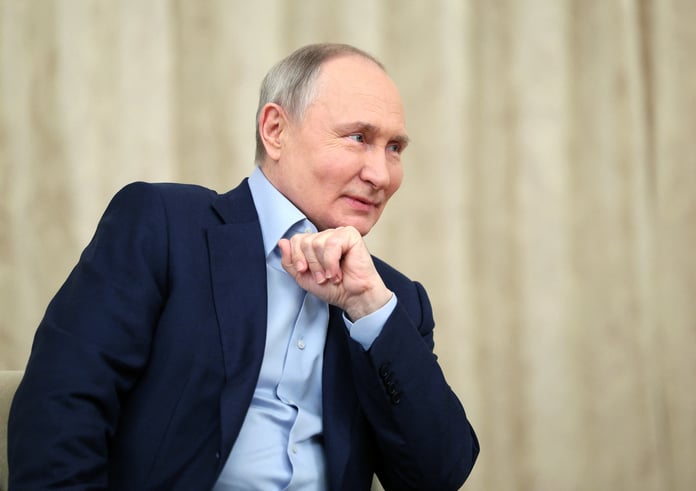Putin’s strategic positioning in 2024 marks a significant turn in global geopolitics. As he enters the year, his confidence seems well-placed, not just in the context of the ongoing conflict in Ukraine but also in the broader geopolitical arena. This analysis delves into various facets of Putin’s current stance, including political, military, and economic dimensions, and their implications on the global stage.
Russian President Vladimir Putin’s decision to run for re-election is a testament to his confidence in the face of a conflict that has become central to his political narrative. The Kremlin’s perspective, framing the Ukraine conflict as a larger battle against the Western military machine, has been effectively communicated to the Russian public. This narrative serves dual purposes: justifying Russia’s military challenges and consolidating national support.
Contrary to widespread expectations of an economic collapse due to the conflict, Russia’s economy has demonstrated resilience. The growth in GDP, driven by unprecedented military spending, has led to rising wages and a reduction in poverty, according to the Stockholm International Peace Research Institute. However, this economic overdrive could have long-term repercussions. Politically, the war has allowed Putin to strengthen his regime by eliminating opposition, thereby ensuring greater stability.
The Western anticipation of Putin’s weakening position in the prolonged conflict seems to be a miscalculation. Western leaders continue to push for a military solution, raising concerns about the conflict’s potential expansion. Statements from global leaders reflect apprehensions about Russia’s intentions beyond Ukraine, including potential threats to other European nations.
The peace talks in Istanbul in 2022 revealed Russia’s initial, more modest objectives, suggesting a “Finlandisation” model for Ukraine’s future relationship with Russia. This model implies military non-alignment with near-full political independence and a de facto alliance with the West. The eventual peace arrangement might closely resemble this model, albeit at a significant cost to Ukraine.
As the conflict approaches its second year, the United States and the European Union face challenges in securing funding for Ukraine’s war effort. Russia’s recent military strategies aim to deplete Ukraine’s defenses, potentially hastening a military collapse. This situation places Ukraine in a precarious position, impacting the broader geopolitical landscape.
The current scenario suggests a reversion to a Cold War-like state, with significant consequences for Ukraine, Russia, and Europe. While this benefits military-industrial complexes and security elites, it poses a tragic outcome for the people involved. Putin’s position at the start of 2024 indicates a complex and evolving dynamic, with far-reaching implications for international relations and peace.


